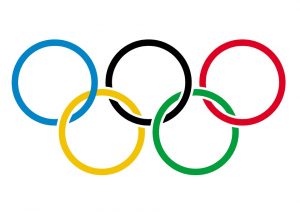
As you’re watching the “XXII Olympic Winter Games” (better known as the Winter Olympics) this month, you may find yourself wondering why all of the announcements are made in French, then English and then Russian. Sochi is in Russia, so shouldn’t the announcements be in Russian? English is the international language of business and is widely spoken by Europeans and North Americans (who make up the largest percentage of participants in the winter games). But why French? With just 74 million native speakers, it’s only number 18 on the list of languages with the most speakers. Why not Mandarin, which 1 in 7 humans speak? Or the number 2 language, Spanish, which has 22 million more speakers than number 3 English, and is spoken on multiple continents around the world?
Blame History
Blame history. Frenchman Pierre de Coubertin is credited with founding the modern Olympic games, the first of which was held in Greece in 1896, and the International Olympic Committee, which is headquartered in the French-speaking portion of Switzerland. Okay—but why English? Again, look to the history books. The 19th century is widely regarded as the British “imperial century,” a period during which British naval, political and economic power were unrivaled in any corner of the globe. Given that little probably happened in the pre-World War I era without Great Britain’s tacit approval, it’s no wonder that English made its way into the official Olympic rules as the second language of the games.
Here are the top 10 nations competing in the Sochi games by the number of athletes, and the predominant languages in each country:
- United States (230), English, Spanish
- Russia (226), Russian
- Canada (221), English and French
- Switzerland (168), French and German
- Germany (153), German
- Norway (134), Norwegian
- Japan (113), Japanese
- Italy (113), Italian
- Sweden (106), Swedish
- France (105), French
With French spoken as a primary language by 3 of the 10 largest contingents in the games, it’s earned its position in the winter Olympics. But what about the summer games, for which French is also the primary language? Here are the numbers from the 2012 London Olympics:
- Great Britain (541), English
- United States (530), English, Spanish
- Russia (436), Russian
- Australia (410), English
- China (396), Mandarin, Cantonese
- Germany (392), German
- France (330), French
- Japan (293), Japanese
- Italy (285), Italian
- Spain (282), Spanish
It doesn’t look as favorable for French in the Summer Olympics, with just one contingent (France) speaking the language as the primary tongue.
The Olympics are a great venue to study the use of language and to remind yourself that in the business world as in the Olympic world, the languages we use don’t always reflect the reality of who our clients and competitors are.

